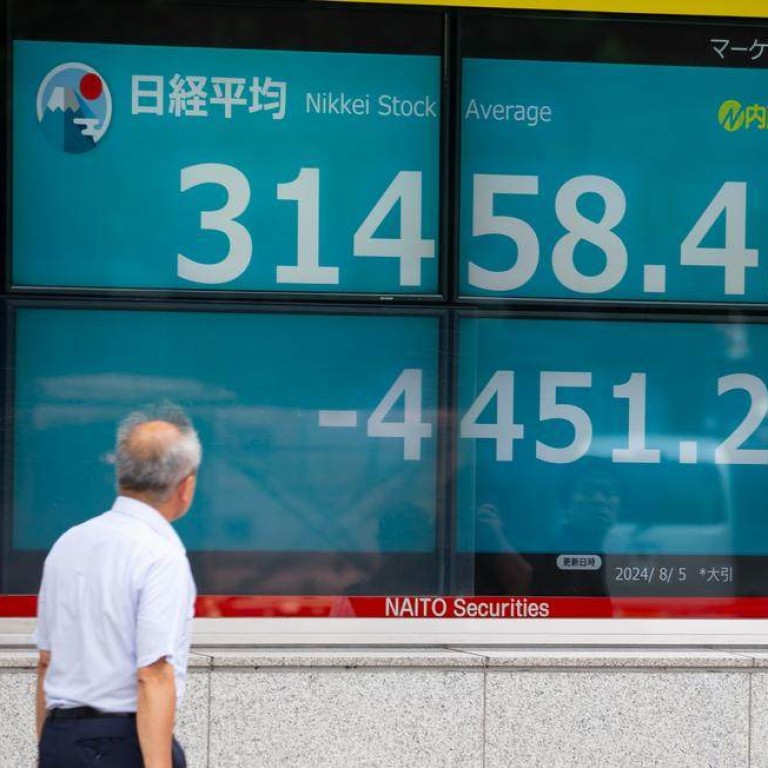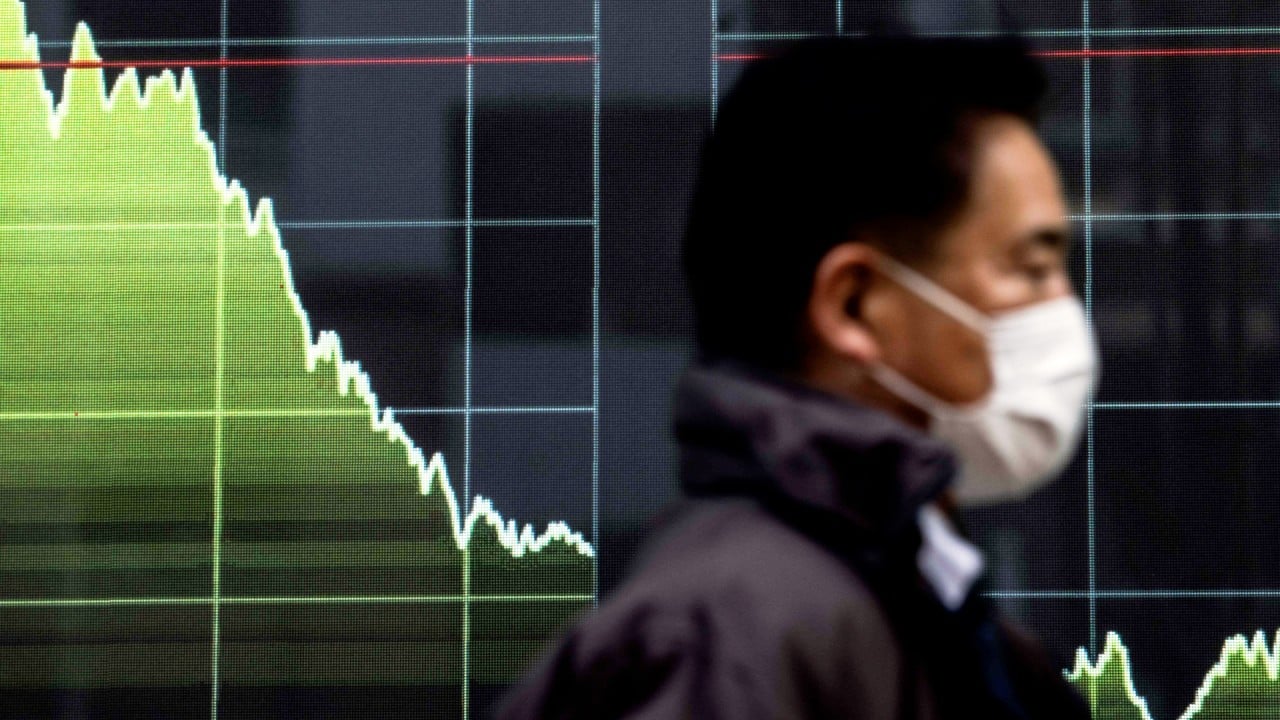
Asia-Pacific markets’ ‘overblown’ fears of US recession led to needed correction: analysts
- Despite market turmoil, economists see the downturn as a controlled response to inflation
Japanese stocks suffered the biggest one-day drop since 1987 on Monday, while the Australian stock market’s ASX 200 was pummelled following disappointing employment figures from the US last week that led to concerns the data all but confirmed a recession was under way.
But economists said much of this was “noise”.
“The worry of a recession is somewhat overblown. Yes, we have seen a softening in labour market conditions, in hiring, but you have to soften, because that’s what the tighter monetary policy is supposed to achieve,” said Song Seng Wun, an economic adviser at the financial services firm CGS.
“We’re not talking about a sharp deceleration in the employment numbers, hiring is still taking place.”

Job losses and corporate bankruptcies have been some of the biggest economic concerns stemming from the current tight monetary policy approach taken by central banks globally since the pandemic ended.
Such tight policies are aimed at tackling inflation and excessive demand from fully employed economies – particularly through high interest rates – but they could go too far, which analysts said prompted the jitters in global markets in recent days.
Globally, corporate insolvencies have been on the rise, with Australia and New Zealand posting some of the biggest increases in Asia-Pacific.
While the number of corporate bankruptcies in Hong Kong has not reached pre-pandemic highs, they are on the rise, the island’s statistics show. The same can be said for South Korea.
“As of mid-2024, most countries have been reporting a continuous upside trend in business insolvencies, supporting our forecast for a noticeable increase in half of the countries globally,” an Allianz Trade spokeswoman told This Week in Asia, adding that two out of three countries tracked were set to end the year with a level of insolvencies above pre-pandemic levels.
“With the global economy not out of the woods yet, we have revised upwards our estimates for business insolvencies in 21 countries,” she noted.
Song said that the rise in insolvencies and job losses was in part due to tight monetary policies reining in “zombie companies” that survive on low interest rates despite being economically unviable.
Gonzalo Hernandez, an economics lecturer at the University of New South Wales’ Business School, agreed, saying insolvencies reflected a cull of firms that were not productive, for example those which could not structure a debt repayment amid higher interest rates.
“In general, we want an economy with efficient firms, so it is not necessarily bad in the long run if we face an increase in insolvencies due to inefficient firms leaving the market,” he said.
On a wider note, Australian economist Richard Holden told This Week in Asia that central banks in the region were thinking similarly in continuing their quest to cool inflation and uphold a tight monetary policy even in the face of market reactions.
Pointing to the Reserve Bank of Australia’s (RBA) governor Michele Bullock’s comments on Tuesday when the bank maintained interest rates again amid hopes they could cut them, Holden said much of what had happened in the recent market sell-offs were “a kind of a correction” and an overreaction to the US employment numbers.

Indeed, Holden said the RBA showed its resolve to keep monetary policy tight by announcing that it would either raise or rates, but not cut them.
For the rest of Asia, Song said tighter monetary policies had not yet significantly affected economic activity adversely, as data showed steady financial activity amid reported port congestion and continued services spending.
While a slowdown in the US could pose some headwinds to Asia, the impact was minimal with many Asian manufacturers still busy with current stock orders, Song said.
“For now, consumers generally, while cautious, are still spending … though they may not be swapping laptops or upgrading their smartphones,” he said.
Song said business disruptions caused by escalating tensions in the Middle East were actually a more worrying threat for Asian economies than insolvencies or slowing jobs growth.
“That worry is obviously more significant now … basically, the situation in the Middle East isn’t looking good. That’s where my concern comes from, as it is for many businesses [as seen] in their responses to various monthly surveys,” he said.


